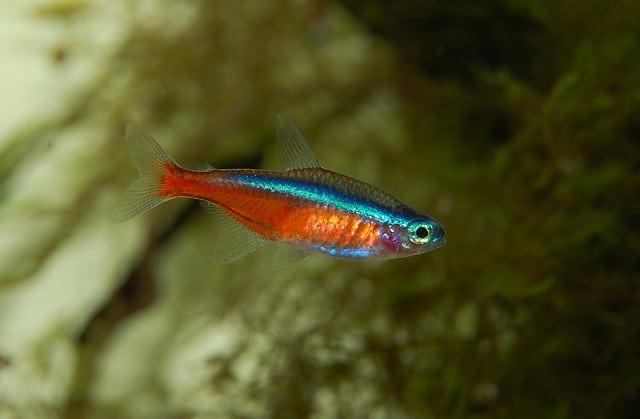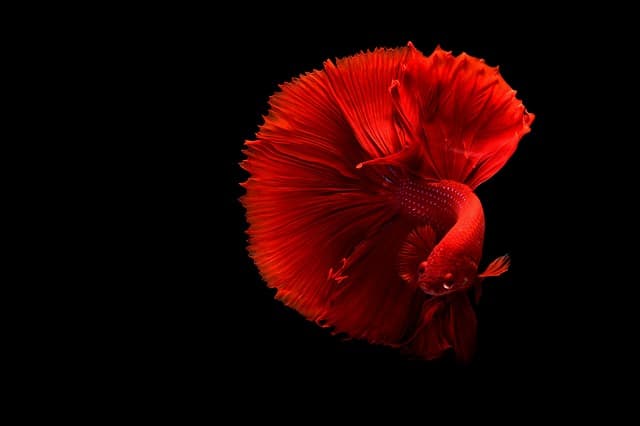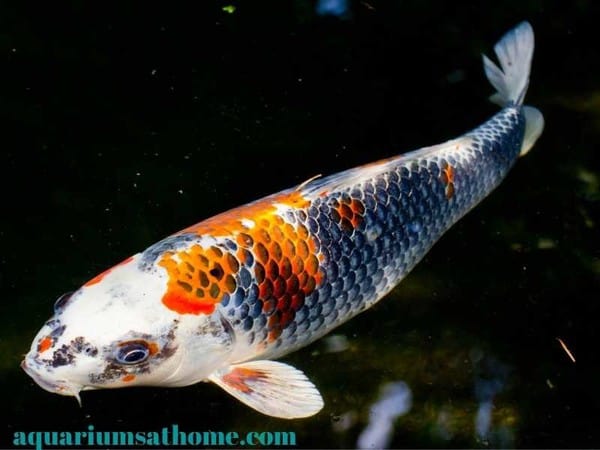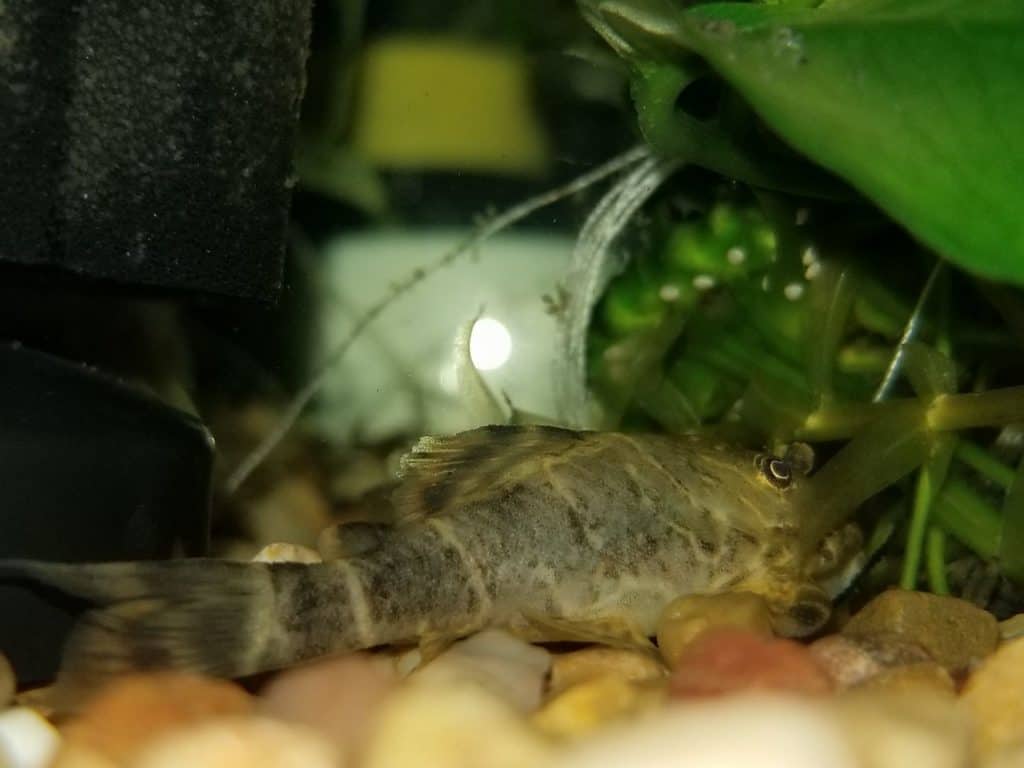A fishpond is an appealing and relaxing feature for almost any backyard oasis. If you have larger fish in an indoor tank and are thinking of moving them to an outdoor pond with more water and space, you may be wondering if it’s cruel or dangerous to do so?
Whether keeping fish in a pond is cruel is up for debate. Some argue that if the pond is large enough and provides the proper care, it can make a safe habitat for fish. Others believe that keeping fish in an outdoor environment exposes them the elements and increases the risk of predation. And yet others feel that confining fish to a limited space goes against their natural behavior and causes suffering.
Now that you know keeping fish in a pond may or may not be considered cruel – depending on the circumstances, that is – let’s explore this topic further and in more detail. Together we’ll learn what factors play a role in determining the welfare of captive fish, which species are best suited for a pond environment, and how to ensure the pond is safe for fish.
So, if you’re ready to learn more about the pros and cons of fishponds and how to keep your aquatic pets safe in a contained environment, then let’s begin!
What Factors Affect the Welfare of Fish in a Pond?
Factors such as the size of the pond, the number of fish, the type of fish, and the maintenance of the pond play a crucial role in determining their welfare in captivity. It’s important to weigh both the pros and cons of keeping fish in a pond and to make informed decisions based on ethical considerations.
What are the Advantages of Keeping Fish in a Pond?
There are 3 main advantages to keeping fish in a pond. Firstly, it can provide a safe and suitable habitat for captive-raised fish. Secondly, it can offer a source of entertainment and relaxation for the owner. Thirdly, it can serve as a decorative element for the pond owner’s property.
What are the Disadvantages of Keeping Fish in a Pond?
There are 3 main disadvantages to keeping fish in a pond. One – confinement can alter the fish’s natural behaviors. Two – limited space can cause both stress and suffering for fish. Three – poor maintenance can result in unhealthy living conditions for fish, not to mention the threat of predation.
Are Koi Ponds Cruel?
From an aquarist’s standpoint, koi ponds typically aren’t considered cruel. In fact, ponds are preferred over indoor tanks since they provide a bigger, more natural aquatic environment for this species. If well-maintained (clean water, adequate food, suitable temperature, etc.), a koi pond is a great way to observe and raise your aquatic pets.
Why are Koi Ponds Sometimes Considered Cruel?
From a conservationist’s perspective, koi ponds are generally thought to be cruel and inhumane. They confine fish to a contained environment with limited space that goes against their natural behavior to explore. Some aquarists as well may also consider outdoor ponds to be cruel since they expose fish the elements (cold, wind, sun, etc.) and make them easy targets for predators such as cats, birds, frogs, etc.
What to do to Ensure a Pond is Safe for Fish?
The best way(s) to ensure an outdoor pond is safe for fish is to do the following:
Keep the Water Clean
Making sure the water is clean and ammonia-free is essential to creating a safe aquatic habitat for captive fish. It’s also important that the parameters (temperature, pH level, water hardness, etc.) are suitable and stable for the species of fish you choose to keep in your outdoor pond.
If you have a large population of fish in your outdoor pond, you should invest in a mechanical filtration system. By effectively removing waste material and plant debris, pond filters also help to oxygenate the water and keep it clear, thus ensuring a safe and balanced ecosystem.
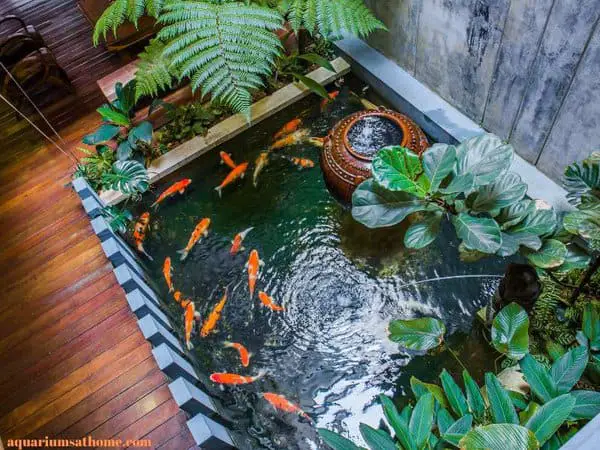
Keep the Temperature Concise
Regulating the temperature in an outdoor pond is essential to the safety of captive fish. Since exposure to the elements (sun, wind, cold, etc.) is inevitable, maintaining the water’s heat is crucial to the health and longevity of not only the fish but also the plants growing in the pond.
Extreme fluctuations in temperature will cause fish to suffer. Keeping the heat as stable as possible and at a level conducive to the natural habitat of the species you’re raising is vital. Consider installing a pond heater, especially is you live in a region with a cooler climate.
Provide Adequate Food
Providing captive fish with enough food to sustain them is essential to their overall health and longevity. In a pond, you must ensure they have access to food in the colder months when the water may be iced over and you’re unable to feed them yourself.
Making sure to feed your fish plenty of good-quality food in fall will help ensure they’re sustained during the winter. Fish metabolism goes down when the temperature drops so they require far less food than in the summer. If the pond has a thriving plant ecosystem, this too will help to keep fish fed.
Keep Larger, Hardier Fish
Keeping larger fish that are hardy and capable of adapting to change is recommended. Goldfish and koi fish, for example, do quite well in an outdoor pond environment. Both are types of cold-water fish that can survive in temperatures as low as 32-degrees Fahrenheit.
Larger fish are also better able to avoid predation from both domesticated and wild animals. Small fish make easy targets for omnivores like birds, cats, frogs, turtles, racoons, foxes, snakes, etc. Making sure the pond is deep enough for fish to ‘dive down’ and escape would-be predators is recommended.
Install the Proper Safeguards
Installing the proper safeguards to deter pond predators is important. Begin by ensuring the area around the pond is fenced and secure. You can also add a cave and floating plants to the pond which help ‘hide’ fish and provide extra protection while resting.
Investing in a fish net is also a good idea. Not only does netting help protect fish from predators, but it also works to keep plants and other debris out. While a netted pond isn’t as visually appealing, if you’re tried other techniques that haven’t worked, this may be your only option.
Take caution when spraying pesticides and other chemicals near the pond. Make sure any plant fertilizers you use to help grown greenery in the pond are toxin-free. The installation of a pump and filter will go along way in helping to keep the pond water clean and safe for fish.
What are the Alternatives to Keeping Fish in a Pond?
There are alternatives to keeping fish in a pond. For You can keep fish indoors in large aquarium to better protect them for the elements. You can adopt fish rather then purchase them which helps support conservation efforts to protect aquatic wildlife habitats.
Final Thoughts
The question of ‘is keeping fish in a pond cruel’ is debatable, depending on your personal views as either an aquarist or a conservationist. Aquarists may feel that if the pond is big enough and well maintained, it’s okay while conservationists typically view captivity as wrong, causing both suffering and stress.
Bearing in mind the physical factors that affect fish health (both positively and negatively) in a pond will help you make informed decisions to create the best possible environment for your aquatic pets. Thank-you for reading and good luck with your aquarist hobby!



